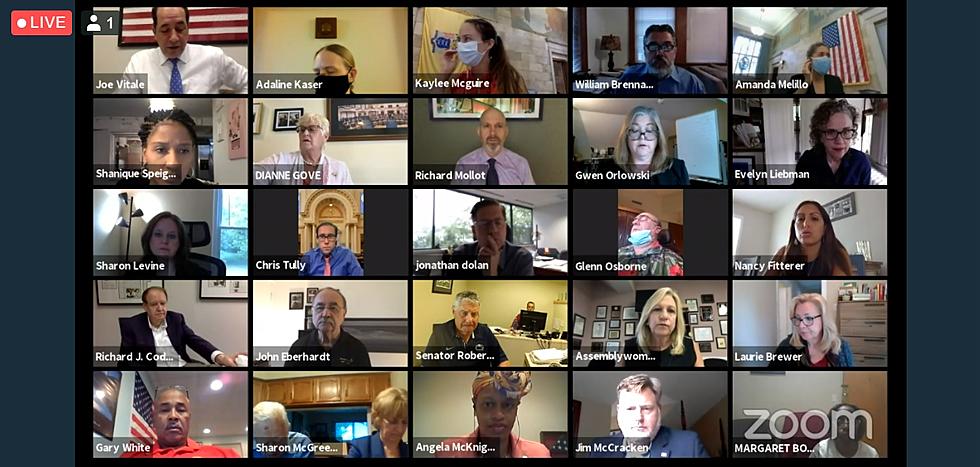
NJ nursing homes say ‘debunked narrative’ behind reform push
State lawmakers hope to vote within 10 days on nearly a dozen bills overhauling regulation of New Jersey’s long-term care facilities, derived from a report commissioned by the Murphy administration in response to the coronavirus pandemic.
New Jersey’s long-term care facilities have been particularly hard hit by COVID-19, with residents and staffers accounting for 7,006 deaths as of Thursday – nearly half of the lab-confirmed COVID deaths in the state, or 44% of deaths that are probably COVID-related are included.
The nearly 24,500 cases among long-term care residents and over 13,000 cases among staff amount to more than one in every five COVID cases in the state.
The industry struck a combative tone at an initial legislative hearing Thursday. Jon Dolan, president and chief executive officer of the Health Care Association of New Jersey, said nursing homes did the best they could given the lack of knowledge and supplies back in March.
“Today’s legislation is not always helpful. To the contrary, the proposed bills sometimes distort the Manatt report and they go with the debunked narrative that we are to blame,” Dolan said.
Assemblywoman Valerie Vainieri Huttle, D-Bergen, said that, unfortunately, the industry has shown it can’t self-police.
“Many of these anecdotes are stories that we heard could have just been corrected by common sense measures and by respect and professional dignity,” Vainieri Huttle said.
Long-term care residents and employees told lawmakers that some of the same issues that caused problems in the spring still persist, such as staffing levels and the availability of personal protective equipment, and should be fixed before an anticipated second wave of COVID-19 in the fall.
Menlo Park Veterans Memorial Home resident Glenn Osborne said staffers have told him they can’t wear personal protective equipment.
“When I confronted the CEO, I was told that they did not want staff to frighten the residents by wearing PPE, including gloves when feeding the residents with their unclean bare hands, even to this day,” said Osborne, who also said it has been nearly two weeks since any residents were given COVID tests.
Resident advocate Dawn Caruso said COVID-positive employees were told to come to work so long as they didn’t have a fever.
“Those veterans should not have died. They fought for our country, they protected us, and this is the thanks they get,” Caruso said.
Certified nursing assistant Margaret Boyce, who works at JFK Hartwyck at Edison Estates, said CNAs weren’t given N-95 masks like nurses and management were, even though they spend the most time with patients.
“When I asked about getting a mask, my supervisor told me: CNAs don’t need N-95s. You’re already exposed, anyway,” Boyce said.
Boyce said she got COVID-19 in the spring while caring for a resident who she hadn’t been told was infected. She called the virus “the worst experience I’ve ever had.”
Among the bills lawmakers are considering is funding for pay increases for certified nurse aides. Nancy Fitterer, president and chief executive officer of the Home Care & Hospice Association, worries what would happen if pay isn’t also increased for other workers who take care of people in their homes.

“Then you would only be taking our staff and having them work in a facility. We have not received any money as of yet from the state,” Fitterer said.
Fitterer said the state in the process of trying to give a $3 an hour increase for personal care providers but that it would only last for three months. The pay hike for CNAs would extend through next summer.
Michael Symons is State House bureau chief for New Jersey 101.5. Contact him at michael.symons@townsquaremedia.com.
MUST SEE: Weird New Jersey Town Names
More From New Jersey 101.5 FM









